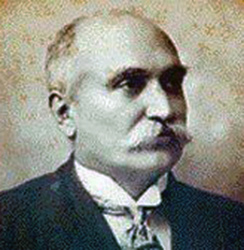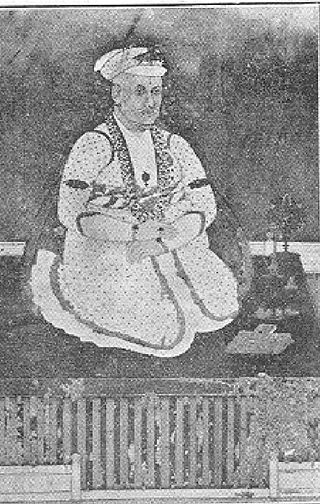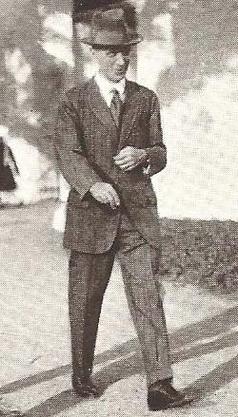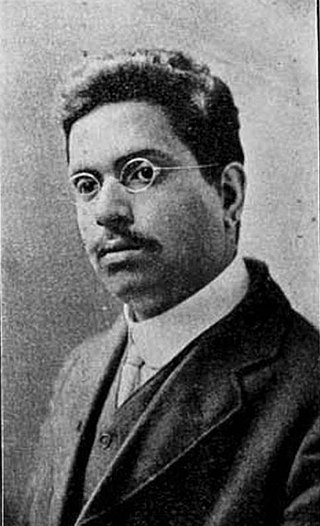
The district of Kodagu in present-day Karnataka comprises the area of the former princely state of the same name.

Thanjavur Marathi people, are a Thanjavur Marathi-speaking ethno-linguistic group, who reside in the central and northern parts of the Indian state of Tamil Nadu. They are the descendants of Marathi administrators, soldiers and noblemen who migrated to this region during the rule of the Thanjavur Maratha kingdom. Thanjavur was a Maratha kingdom in Tamil Country, until the British East India Company dethroned the last Thanjavur Maratha king, Shivaji of Thanjavur. It was founded by Maratha Warrior King Chatrapati Shivaji's half-brother, Ekoji alias Venkoji Rajē Bhonsalē. The Kshatriyas use Maratha, while the Brahmins use the surname Deshastha.

Lewin Bentham Bowring (1824–1910) was a British Indian civil servant in British India who served as the Chief Commissioner of Mysore between 1862 and 1870. He was also an author and man of letters.

Benjamin Lewis Rice, popularly known as B. L. Rice, was a British historian, archaeologist and educationist. He is known for his pioneering work in deciphering inscriptions, especially in Kannada, and in Sanskrit inscriptions in the Kingdom of Mysore and is eulogized as shasanapitamaha or Purathathva Pitamaha Rice's researches were published as the voluminous Epigraphia Carnatica which contains translations of about 9000 inscriptions he found in the Old Mysore area. Rice also compiled the much acclaimed Mysore Gazetteer which still remains the primary source of information for most places in Mysore and neighbouring Coorg. Rice served with distinction in the Mysore civil service and as first Director of the Mysore State Archaeology Department.

The political history of the region on the Deccan Plateau in west-central peninsular India that was later divided into Mysore state and Coorg province saw many changes after the fall of the Hindu Vijayanagara Empire in 1565. The rise of Sultan Haidar Ali in 1761 introduced a new period.

SirTanjore Ananda Rao was an Indian administrator and statesman who served as the 18th Diwan of Mysore from 1909 to 1912. He was the eldest son of Sir T. Madhava Rao.

SirVishwanath Patankar Madhava Rao was an Indian administrator and statesman who served as the 17th Dewan of Mysore from 1906 to 1909 and that of Baroda from 1910 to 1913.

Rai Raya Rai Venkata Rao, was an Indian administrator and statesman who served as Diwan of Travancore 1821–1829 and 1838–39. He was the father of R. Raghunatha Rao, brother of R. Ranga Rao and paternal uncle of Sir T. Madhava Rao.

Thanjavur District was one of the districts in the erstwhile Madras Presidency of British India. It covered the area of the present-day districts of Thanjavur, Tiruvarur, Nagapattinam, Mayiladuthurai and Aranthangi taluk, Karambakkudi taluk of Pudukkottai District in Tamil Nadu. Apart from being a bedrock of Hindu orthodoxy, Tanjore was a centre of Chola cultural heritage and one of the richest and most prosperous districts in Madras Presidency.
The Mysore Commission, also known as commissioners' rule or simply the Commission Rule, was a period and form of government in the history of the Kingdom of Mysore and the neighbouring province of Coorg from 1831 to 1881 when British commissioners administered the kingdom due to the deposition of Maharaja Krishnaraja Wodeyar III and later due to minority of Yuvaraja Chamaraja Wadiyar X. A board of commissioners constituted the chief executive body and provincial head of the kingdom's government. The commission began with uninstallation of Krishnaraja Wodeyar III as King in 1831 and ended with investing Chamaraja Wadiyar X as King in 1881.

Dewan Bahadur Ketolira Chengappa, C.I.E. (1878-1963) was an Indian civil servant and administrator who served as the Chief Commissioner of Coorg Province from 1943 to 1949.

Coorg State was a Part-C state in India which existed from 1950 to 1956. When the Constitution of India came into force on 26 January 1950, most of the existing provinces were reconstituted into states. Thus, Coorg Province became Coorg State. Coorg State was ruled by a Chief Commissioner with Mercara as its capital. The head of the government was the Chief Minister. Coorg State was abolished on 1 November 1956 as per the States Reorganisation Act, 1956 and its territory were merged with Mysore State. Presently, Coorg forms a district of Karnataka state.

Coorg Province was a province of British India from 1834 to 1947 and the Dominion of India from 1947 to 1950. Mercara was the capital of the province. It was administered by a Commissioner and later, Chief Commissioner appointed by the Government of India. The Chief Commissioner, was usually based in Bangalore. From 1834 to 1881, the Chief Commissioner, was also the Commissioner of Mysore. From 1881 to 1940, the Chief Commissioner was usually the British Resident to the princely state of Mysore.

Sir William Pell Barton, had a distinguished career in the Indian Political Service. He was British Resident in Baroda (1919), Mysore (1920–25) and Hyderabad (1925–30) and was well known as an authority on the North West Frontier and the Princely states during the days of British rule in India. On leaving the service he worked as an historian of the Princely states and was a frequent contributor to periodicals on issues concerning India and Pakistan.
Sir James Davidson Gordon (1835–1889) was a British civil servant and administrator who served as the Chief Commissioner to Mysore and Coorg from 1878 to 1881 and as the Chief Commissioner of Coorg up to 1883. He is credited with having introduced railways in the Kingdom of Mysore.
Ambassador Lieutenant-Colonel BabaDaya Singh Bedi (1899–1975) was an Indian diplomat, Civil Servant and a Cavalry officer in the British Indian Army with the 6th Duke of Connaught's Own Lancers who after the partition of India served as India's First High Commissioner to Australia from 1948 to 1951 and Chief Commissioner of Coorg State from 1951 to 1956.
Lientenant-Colonel John de la Hay Gordon, CSI, CIE, OBE, MC was a British army officer, administrator and diplomat who served as Resident to the Mysore Kingdom from 1937 to 1942 and Chief Commissioner of Coorg Province from 1937 to 1940.

Sir Sonti Venkata RamamurthyKCIE was an Indian civil servant who served as Chief Secretary to the Government of Madras Presidency from 1939 to 1943 and as advisor to the Madras government from 1941 to 1945. He was the first Indian to be appointed Chief Secretary of Madras. Ramamurthy also acted as the Governor of Bombay Presidency from 19 May 1947 to 30 May 1947.

Nidemane Somana was an Indian politician and lawyer. He was an Indian National Congress leader in Coorg State and served as the Member of Parliament for the state in the first legislature after the independence of India.